.jpg)
Hong Kong University of Science and Technology (Guangzhou)
| Home | Call for Posters | Registration | Guests | Program | Directions | Contact |
The conference will be conducted in English. We have invited a number of renowned experts and scholars from both domestic and international institutions to participate in paper presentations and discussions. The invited scholars include:

Professor, Director
Department of Sociology, University of Chicago, USA
Bio: Dr. Evans is the Director of the Knowledge Lab, a Fellow in the Computation Institute, and the Co-Director for the Masters in Computational Social Science Program. In addition to his leadership duties, Dr. Evans is a Max Palevsky Professor in Sociology with research that focuses on the collective system of thinking and knowing, ranging from the distribution of attention and intuition, the origin of ideas and shared habits of reasoning to processes of agreement (and dispute), accumulation of certainty (and doubt), and the texture—novelty, ambiguity, topology—of human understanding. He is especially interested in innovation—how new ideas and practices emerge—and the role that social and technical institutions (e.g., the Internet, markets, collaborations) play in collective cognition and discovery.

Professor
Department of Computer Science, University College London (UCL), UK
Bio: Mirco Musolesi is Professor of Computer Science at the Department of Computer Science at University College London, where he leads the Machine Intelligence Lab. He is also Professor of Computer Science at the University of Bologna, Italy. Previously, he held research and teaching positions at Dartmouth, Cambridge, St Andrews, and Birmingham. He has broad research interests spanning several traditional and emerging areas of Computer Science and beyond. More specifically, current research areas of his lab include machine learning/artificial intelligence (with a focus on AI-based decision making, generative artificial intelligence, and multi-agent systems), computational modeling of user/human/machine behavior, and machine intelligence for ubiquitous and cyber-physical systems.

Professor, Managing Director
Department of the Analytic Computing, University of Stuttgart, Germany
Bio: Dr Steffen Staab is Professor for Analytic Computing at University of Stuttgart and holds a Chair for Web and Computer Science at University of Southampton. Steffen research interests span many aspects of Semantic Technologies, from the semantics of text to semantics of graph databases to machine learning that involves semantic issues. At the University of Stuttgart, he heads the Institute for Artificial Intelligence, is a spokesperson for the Cluster of Excellence in Data Integrated Simulation Science and a co-spokesperson for the Interchange Forum for Reflecting on Intelligent Systems. He has a co-founder of Semanux GmbH, a company dedicated to making computers easier to use for motorically disabled people.
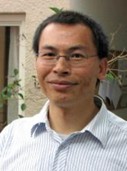
Chair Professor
Institute of Computer Science, University of Goettingen, Germany
Bio: Prof. Xiaoming Fu received his Ph.D. in computer science from Tsinghua University, Beijing,
China in 2000. He was then a research staff at Technical University Berlin until joining the University
of Göttingen, Germany in 2002 as assistant professor, where he became a full professor of computer
science and head of Computer Networks Group in 2007. He has spent research visits at universities of
Cambridge, Columbia, UCLA, Tsinghua, Nanjing, Uppsala, UPMC, and Sydney. He has been the director of
Sino-German Institute of Social Computing, University of Göttingen and a principal scientist at the
Research Center for Social Intelligence, Fudan University.
Prof. Fu's research interests include networked systems, cloud and edge computing, big data and
social computing. He is an IEEE Fellow, an ACM Distinguished Member, and a member of Academia Europaea,
and is currently an editorial board member of IEEE Network and IEEE Transactions on Network and Service
Management, and co-editor-in-chief of the Journal of Social Computing. He has served on
organization/program committees of leading conferences such as SIGCOMM, CoNEXT, MOBICOM, MOBIHOC,
INFOCOM, ICNP, ICDCS, SDM and COSN. During 2011-2013 he served as chair of the Internet Technical
Committee (ITC) of the IEEE Communications Society and the Internet Society. He has been a PI in EU FP6
ENABLE, VIDIOS, Daidalos-II, MING-T, H2020 COSAFE, HE CODECO and COVER projects, as well as coordinator
and chief scientist of EU FP7 MobileCloud, GreenICN, CleanSky and H2020 ICN2020 projects.
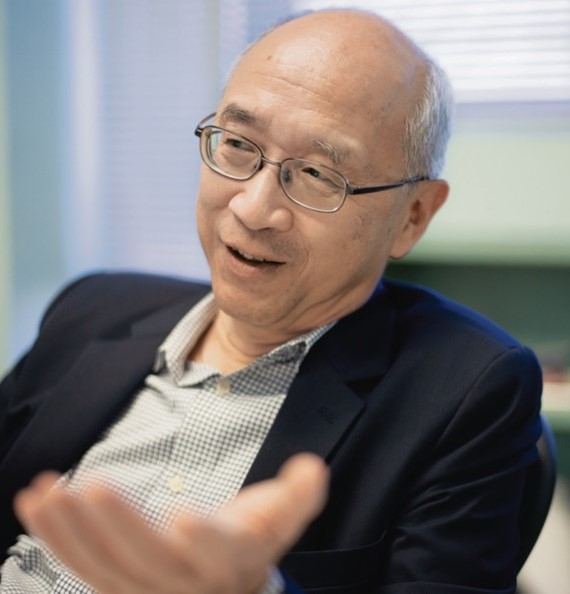
Emeritus Professor
Department of Information Engineering, Hong Kong Chinese University, Hong Kong, China
Data Science Research Centre at Saint Francis University, Hong Kong, China
Bio: Prof. Dah Ming Chiu received his first degree from Imhis Ph.D. degree from Harvard
University. He worked in industry for several hitech companies of his time: Bell Labs, DEC and Sun
Microsystem Labs. He returned to academia in 2002 to become a professor
in the Department of Information Engineering at the Chinese University
of Hong Kong. He served as department chairman from 2009 to 2015.
His recent research interests include Applied data analysis, Internet
content distribution, and network economics. One earlier project on
applied data analysis is on academic social networks, trying to understand
the academic community better through data mining publications and related
data. Dah Ming is an IEEE Fellow. He served as an Associate Editor for
IEEE/ACM Transactions on Networking from 2006 to 2011 and TPC member for
many conferences. He was the general co-chair of ACM Sigcomm 2013 held in
Hong Kong in August of 2013, with record breaking attendance.

Associate Professor
Leverhulme Centre for Demographic Science, University of Oxford, UK
Bio: Charles is an Associate Professor in Data Science and Informatics at the University of Oxford, where he works with colleagues at the Leverhulme Centre for Demographic Science (and forms part of the Senior Management Board). He is currently a Co-Investigator at the ESRC funded Centre for Care (and on another ESRC Strategic Research Grant), and acts as the Local Network Coordinator for the UK Reproducibility Network (as part of Reproducible Research Oxford). He was also previously a British Academy Postdoctoral Fellow. His training includes degrees in Econometrics, Economics, Advanced Research Methods, and Investment and Finance, and his research focuses on methodological innovations which uncover patterns in large-scale observational data (with a focus on equality and equity). This includes but is not limited to population-wide scientometric analysis, model evaluation in machine learning, and quantitative approaches to the life course (broadly defined). He has published in many leading journals, and enjoys using Python, Bash and TeX to solve societal challenges in an Open and Reproducible way.

Associate Professor
Department of Environmental Planning, Seoul National University, Korea
Bio: Steven Jige Quan is an Associate Professor and Director of the City Energy Lab in the Graduate School of Environmental Studies at Seoul National University, South Korea. His research spans smart and sustainable urban systems, urban form and energy, AI-aided design, urban thermal environment, and sustainable zoning systems. Before joining Seoul National University, Steven served as Department Chief Planner at the Beijing Tsinghua Tongheng Urban Planning & Design Institute, China, and worked as a Postdoctoral Researcher and Lecturer at Georgia Tech. He also held the role of Assistant Manager at the Tongji-Georgia Tech Sino-U.S. Eco Urban Lab. Steven holds a B.Arch and an M.Eng in Urban Planning from Tsinghua University, China, and an M.Sc in Computer Science and a Ph.D. in City and Regional Planning from Georgia Institute of Technology. He has published extensively in leading journals such as Renewable and Sustainable Energy Reviews, Energy and Buildings, Building and Environment, and Environment and Planning B. His work has been supported by several funding organizations, most notably the prestigious Outstanding Young Scientist Grant awarded by the National Research Foundation (NRF), South Korea.
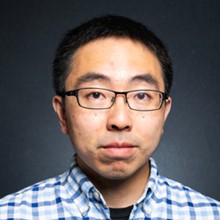
Associate Professor
Department of Engineering Science, University of Oxford, UK
Bio: Xiaowen Dong is an associate professor in the Department of Engineering Science at the University of Oxford, where he is a member of both the Machine Learning Research Group and the Oxford-Man Institute. Prior to joining Oxford, he was a postdoctoral associate in the MIT Media Lab, where he remains as a research affiliate, and received his PhD degree from the Swiss Federal Institute of Technology (EPFL), Lausanne, Switzerland. His main research interests concern signal processing and machine learning techniques for analysing network data, and their applications in studying questions across social and economic sciences.

Associate Professor
Booth School of Business, University of Chicago, USA
Bio: Joshua Conrad Jackson is a Neubauer Family Assistant Professor at the Booth School of Business, and a co-PI of the Chicago Culture Lab. His research focuses on how culture and psychology co-evolve over time. He is especially interested in how social psychology adapted to the evolution of large and diverse human societies throughout human history, and how new trends involving technology and globalization may change our social psychologies in the future. He received his BA from McGill University in 2013, his PhD from the University of North Carolina, Chapel Hill, in 2021, and worked at the Kellogg School of Management for two years as a post-doctoral fellow before joining Booth. He has also served as a visiting scholar at the Max Planck Institute for the Science of Human History and Melbourne University.

Assistant Professor
Stanford University, USA
Bio: Guilbeault’s work lies at the intersection of cultural sociology, cognitive science, machine learning, organization studies, and philosophy. He received dual bachelor’s degrees in philosophy and rhetoric (with a minor in cognitive science) from the University of Waterloo, and a master’s degree in Cognitive Linguistics from the University of British Columbia. He then completed a PhD in Communications in the Network Dynamics Group at the University of Pennsylvania’s Annenberg School for Communication. He is co-director of the Berkeley-Stanford Computational Culture Lab, and a founding member of the theoretical cognitive science and machine learning collective comp-syn (which stands for “computational synesthesia”). His work has appeared in a number of top journals, including Nature, The Proceedings of the National Academy of the Sciences, and Management Science, as well as in popular news outlets, such as The Atlantic, Wired, and The Harvard Business Review. He has received top research awards from The Cognitive Science Society, The International Communication Association, and twice from The International Conference on Computational Social Science.

Assistant Professor
Department of Interactive Media, Hong Kong Baptist University, Hong Kong, China
Bio: Dr. Yupeng Li research interests include robust machine learning algorithms, network science and systems, and algorithmic fairness. He is also committed to the innovation, design and practical application of algorithm theory in the interdisciplinary field. Dr. Lee received his Ph.D. in Computer Science from the University of Hong Kong, was a postdoctoral researcher at the University of Toronto, Canada, and is a member of IEEE and ACM.

Postdoc
Complexity Science Hub, Austria
Bio: Eddie Lee is an Austrian Science Fund ESPRIT Fellow at the Complexity Science Hub in Vienna. After earning a PhD in Theoretical Physics from Cornell University in 2019, he was a postdoctoral fellow at the Santa Fe Institute before moving to Vienna. His work is highly interdisciplinary, and he studies the role of information in bio-social systems such as in the neural connectome, social cascades, niche construction, voting, and innovation.

Professor, Thrust Head
Thrust of Urban Governance and Design, Hong Kong University of Science and Technology (Guangzhou)
Bio: Dr. Ge Lin KAN is the Head of UGOD Thrust of Hong Kong University of Science and Technology (Guangzhou). He received his Ph.D. in Geography from State University of New York at Buffalo in 1996. Prior to joining HKUST (GZ) in January 2022, he was the Professor of Department of Environmental & Occupational Health, School of Public Health at University of Nevada Las Vegas. He served as the director of UNLV Nevada IDeA Network of Biomedical Research Excellence between 2015 and 2016, and he was the director (2011-2014) and Senior Scientist/Consultant (2015-2021) of Nebraska State Joint Public Health Data Center. His research interest includes GIS, spatial epidemiology, data integration, aging and urban health.
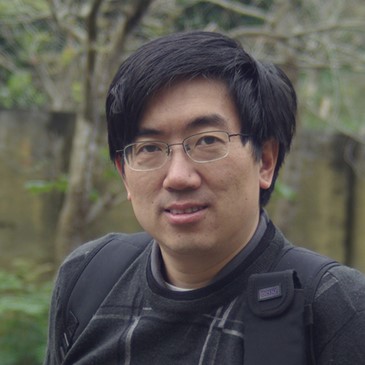
Professor
School of Social Sciences, Tsinghua University
Bio: Jar-Der Luo is a Joint Appointed Professor, Social Science School and Public Administration School, Tsinghua University (Beijing), Chief Editor, Journal of Social Computing, and PI, Tsinghua U. Computational Social Sciences & National Governance Lab, Social Sec. He earned his Ph.D degree in Sociology Dept. of State U. of New York at Stony Brook, and his email address is jdluo@mail.tsinghua.edu.cn. He researches numerous topics in social network studies, including social capital, trust, social network in big data, network dynamics, self-organization process and Chinese indigenous management researches, such as guanxi, guanxi circle, favor exchange, mutual reinforcement and constraint between Yin and Yang, and dynamic balance theory.

Chair Professor
Thrust of Computational Media and Arts, Hong Kong University of Science and Technology (Guangzhou)
Bio: Pan Hui is a Chair Professor of Computational Media and Arts and Director of the Center for Metaverse and Computational Creativity at Hong Kong University of Science and Technology (Guangzhou). He has published more than 500 research papers and with over 30,000 citations. Hui is an internationally recognized scholar, having been elected as an International Fellow of the Royal Academy of Engineering and a Member of the Academia Europaea. He is also an IEEE Fellow and an ACM Distinguished. In addition to his academic accomplishments, Hui is a founding member of the INTEPOL Expert Group on Metaverse and a member of the World Economic Forum’s Global Future Council on the Future of Metaverse. He obtained his Computer Science PhD degree from the University of Cambridge.

Professor
College of Media and International Culture, Zhejiang University
Bio: Zi-Ke Zhang, Male, Ph.D in Information Physics in 2011 at University of Fribourg, Switzerland, now is serving as a full professor at College of Media and International Culture, Zhejiang University. His main research interests is the interdisciplinary area of data- and model-driven social computing oriented research questions, He has published more than 100 peer-reviewed journal papers with more than 6000 times from Google Scholar. He was also selected as Zhejiang Provincial Young academic Leaders (2017), and the Outstanding Teacher of Zhejiang Province (2018).

Professor
School of Economics and Management, China University of Petroleum (Beijing)
Bio: Yang Yu graduated from Stanford University in June 2016 with a doctoral degree. He is currently the Director of the Artificial Intelligence International Academic Exchange Program at the Institute of Artificial Intelligence International Governance at Tsinghua University, and an Assistant Professor at the Institute of Cross Information at Tsinghua University. The main research directions include algorithmic economy, computational energy economics, computational ecology and environmental management, big data analysis of energy environment and ecology, and optimization operations research. Multiple academic papers formed through related research, and twice won the IEEE PESGM Best Paper Award.
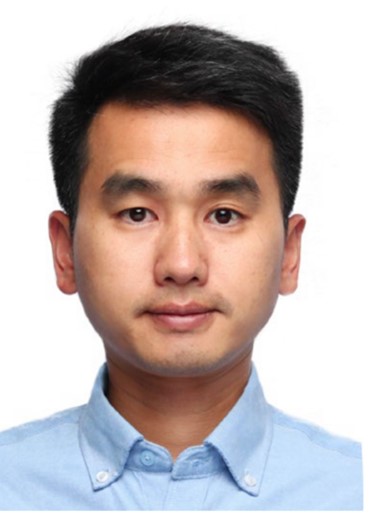
Professor
School of Computer Science, Nanjing University
Bio: Wen-zhong Li receives his B.S. and Ph.D degree from Nanjing University, China, both in computer science. He was an Alexander von Humboldt Scholar Fellow in University of Goettingen, Germany. He is now a professor in the Department of Computer Science, Nanjing University. Dr. Li's research interests include distributed computing, big data mining and social networks. He has published over 150 peer-review papers at international conferences and journals, which include INFOCOM, UBICOMP, ACM TheWebConf, AAAI, IJCAI, ACM Multimedia, CVPR, IEEE Communications Magazine, IEEE/ACM Transactions on Networking (ToN), IEEE Journal on Selected Areas in Communications (JSAC), IEEE Transactions on Knowledge and Data Engineering (TKDE), IEEE Transactions on Parallel and Distributed Systems (TPDS), etc. He served as Program Co-chair of MobiArch 2013 and Registration Chair of ICNP 2013. He was the TPC member of several international conferences and the reviewer of many journals. He is the principle investigator of four fundings from NSFC, and the co-principle investigator of a China-Europe international research staff exchange program. Dr. Li is a member of IEEE, ACM, and China Computer Federation (CCF). He was also the winner of the Best Paper Award of ICC 2009, APNet 2018 and KSEM 2023. He was featured on Elsevier’s Most Cited Chinese Researchers in 2022-2023.

Professor
School of Computer Science, South China Normal University
Bio: Yong Tang is the founder of SCHOLAT and Professor of the School of Computer Science at South China Normal University. He got his BS and MSc degrees from Wuhan University in 1985 and 1990 respectively, and PhD degree from University of Science and Technology of China in 2001, all in computer science. Before joined SCNU in 2009, he was vice Dean of School of Information of Science and Technology at Sun Yat-Sen University. He has published more than 200 papers and books. He has supervised more than 50 PhD students since 2003 and more than 200 Master students since 1996. His main research areas include data and knowledge engineering, social networking and collaborative intelligent applications. For more information please visit https://scholat.com/ytang

Professor
School of Computer Science, Fudan University
Bio: Yang Chen is a Professor within the School of Computer Science at Fudan University and a Vice Director of the Shanghai Key Lab of Intelligent Information Processing. He leads the Big Data and Networking (DataNET) group since 2014. Before joining Fudan, he was a postdoctoral associate at the Department of Computer Science, Duke University, USA. He received his BSc and Ph.D. degrees from Department of Electronic Engineering, Tsinghua University in 2004 and 2009, respectively. His research interests include social computing, Internet architecture and mobile computing. He served as an OC / TPC Member for many international conferences, including SOSP, SIGCOMM, WWW, MobiSys, ICDCS, IJCAI, AAAI, ECAI, IWQoS, and DASFAA. He is a Senior Member of ACM, IEEE and CCF.
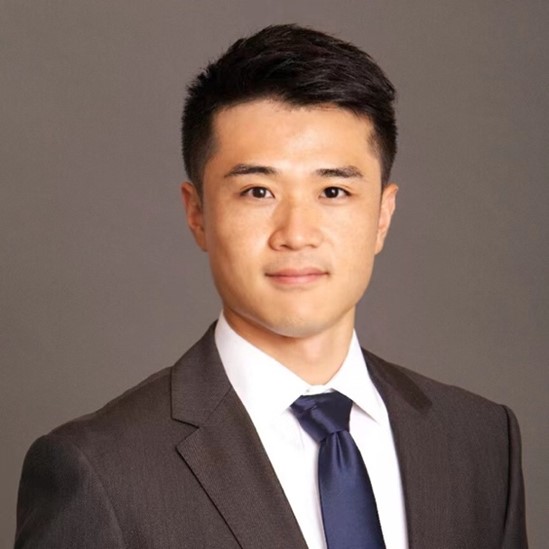
Associate Professor
School of Architecture, Tsinghua University
Bio: Prof. Yuan Lai is an Associate Professor at Tsinghua University School of Architecture Department of Urban Planning. His expertise lies at the intersection of urban information, applied data science, and urban systems. Prior to Tsinghua, Dr. Lai was a Lecturer in Urban Science and Planning at MIT Department of Urban Studies and Planning, and a research affiliate at NYU Marron Institute of Urban Management. His work has been featured at the United Nations, Bloomberg Technology, Urban Design Forum, NYC Media Lab, American Planning Association, and American Society of Civil Engineers.

Associate Professor
School of Information, Central University Finances and Economics
Bio: YANG Hu, an associate professor, received his Ph.D. in 2014 from the Renmin University of China, Beijing. He has been a visiting scholar at the Department of Public Health, Aarhus University in Denmark, and the Department of Biostatistics, the University of Minnesota in the United States, and the Hokkaido University in Japan. He is currently working at the School of Information, Central University Finances and Economics. His research projects include big complex data analysis. He has published some academic papers in well-known journals, such as “Decision Support Systems”, “Information Sciences”, “International Review of Financial Analysis”, “Statistics in Medicine”, “Computational Statistics and Data Analysis”, “Information Processing & Management” and so on. He serves as an associate editor of the Journal of Social Computing and a reviewer of many journals and international conferences.

Associate Professor
School of Business, Sun Yat-sen University
Bio: Li-jian Wei, Associate Professor, Doctoral Supervisor, Yixian Scholar, Director of Big Data Center, School of Management, Sun Yat-sen University, Executive Head of Philosophy and Social Science Laboratory of Ministry of Education on Big Data Management Behaviour and Decision Making, Executive Director of Risk Management Technology Laboratory of CUHK Bay Valley, Recipient of the Distinguished Youth Project of Guangdong Natural Science Foundation and Guangzhou High-level Financial Talent. He is the editorial director of International Journal of Financial Engineering. His main research areas are financial technology and computational experimental finance, and he has long been devoted to the research of complex systems theory and computer technology in computational social sciences, especially the use of computational experimental methods to analyse the complex dynamics of financial markets. His research results have been published in prestigious journals in the field, such as Journal of Economic Dynamics and Control and Journal of Management Science, etc., and his results have been selected as ESI Hot Papers and Highly Cited Papers. He has provided many policy recommendations for national and local financial and economic development, and his research ideas have been reported by CCTV News, CCTV Finance and Economics, People's Daily and Learning Country.

Associate Professor
School of Computer Science, Huazhong University of Science and Technology
Bio: Hong Huang is an Associate Professor within the School of Computer Science at Huazhong University of Science and Technology. She received her Ph.D. degree from University of Göttingen in 2016 and her Mater degree from Tsinghua University in 2012. Her research interests include social computing, artificial intelligence and ai4science. She served as SPC / PC Members for many international conferences, including KDD, WWW, IJCAI, AAAI, ECAI, WSDM, etc..
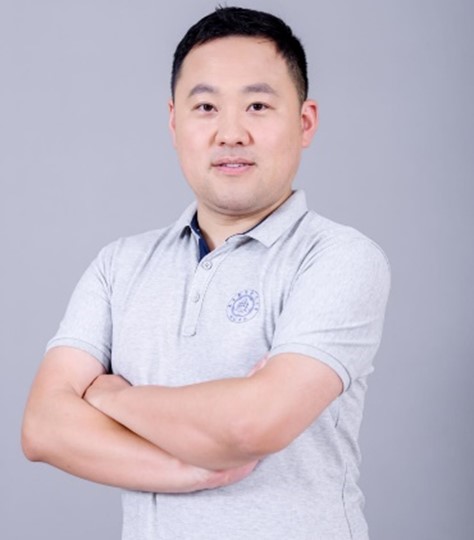
Associate Professor
College of Computer Science and Technology, Nanjing University of Aeronautics and Astronautics
Bio: Shuai Xu receiveds his B.S. degree from Northeastern University (China) in 2014 and Ph.D degree from Southeast University (China) in 2020, respectively, both in computer science. He used to be a CSC Joint-PhD student at Georg-August-University of Göttingen (Germany). He is now a tenured associate professor in the College of Computer Science, Nanjing University of Aeronautics and Astronautics. His research interests include smart city, big data mining and social networks. He has published over 30 peer-review papers at international conferences and journals. He was the TPC member of several international conferences and the reviewer of many journals. He is a member of IEEE/ACM/CCF.

Assistant Professor
Thrust of Urban Governance and Design, Hong Kong University of Science and Technology (Guangzhou)
Bio: Dr. Chaosu LI is an assistant professor in the Urban Governance and Design Thrust at Hong Kong University of Science and Technology (Guangzhou). Previously, he was a postdoctoral researcher at the Center for Urban and Regional Studies (CURS), University of North Carolina at Chapel Hill (UNC-Chapel Hill). Dr. Li received his master degree in City and Regional Planning from Peking University and Ph.D. in City and Regional Planning from UNC-Chapel Hill. He has expertise in urban form, urban sustainability and resilience, applied GIS, and urban big data analytics. His work has been published in the Journal of the American Planning Association(JAPA), Journal of Planning Education and Research(JPER), Environment and Planning A, Environment and Planning B, Land Use Policy, Journal of Environmental Management, Journal of Environmental Planning and Management, Renewable and Sustainable Energy Reviews, Energy and Buildings, plus other journals. Dr. Li's research projects have been supported by the National Natural Science Foundation of China (NSFC), the joint funding scheme of the National Natural Science Foundation of China (NSFC) and the Macao Science and Technology Development Fund, the Macao Foundation, and the Guangdong Provincial Natural Science Foundation, among others.
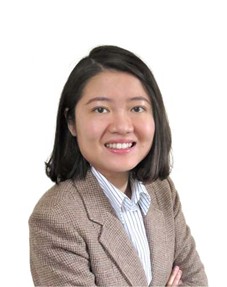
Assistant Professor
Thrust of Urban Governance and Design, Hong Kong University of Science and Technology (Guangzhou)
Bio: Dr. Muzhi Zhou is an Assistant Professor in the Urban Governance and Design Thrust at the
Hong Kong University of Science and Technology (Guangzhou) beginning from January 2022. Previously, she
was a postdoctoral researcher at the Department of Sociology, University of Oxford, supported by the
European Research Council. Dr. Zhou received her Ph.D. in Sociology from the University of Oxford in
2019.
She has expertise in the field of gender and family, life course and digital inequality. She studies how
critical life events, such as marriage and childbirth, reshape people’s lives in East Asia and Western
Societies, where the culture, social policies and welfare regimes differ. Her recent work focuses on how
social inequalities are reflected in the digital/virtual society and their interconnectedness with the
physical world. Her work has been published in top journals such as Gender & Society, Population and
Development Review, Demographic Research, and Chinese Sociological Review.
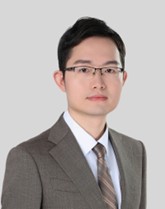
Assistant Professor
Thrust of Urban Governance and Design, Hong Kong University of Science and Technology (Guangzhou)
Bio: Dr. Rui Cao is currently an Assistant Professor at the Urban Governance and Design Thrust, The Hong Kong University of Science and Technology (Guangzhou). Before joining HKUST(GZ), he worked at the Department of Land Surveying and Geo-Informatics and the Smart Cities Research Institute, The Hong Kong Polytechnic University. He received his PhD degree from The University of Nottingham and his MEng and BEng Degrees from Wuhan University. He is specialized in GIScience and particularly interested in GeoAI and Urban Informatics, with an ultimate goal of contributing to sustainable and human-centered smart cities for the benefit of society.

Assistant Professor
Thrust of Internet of Things, Hong Kong University of Science and Technology (Guangzhou)
Bio: Prof. Gareth Tyson is based at Hong Kong University of Science and Technology (GZ). His research is primarily in the field of Internet measurements, with a focus on Web and Social Computing. He uses empirical methods to evaluate the properties of such systems, and then builds on this to propose design innovations. He regularly publishes in venues such as SIGCOMM, SIGMETRICS, WWW, INFOCOM and IMC. He has been awarded the IRTF Applied Networking Research Award 2023; Distinguished TPC Member at CoNEXT 2022; WOAH Shared Task on Hateful Memes Prize 2021; the Best Student Paper Award at the Web Conference 2020; the Best Paper Award at eCrime'19; the Honourable Mention Award at the Web Conference 2018 (best paper in track); and the Best Presentation Award at INFOCOM'18. He received QMUL's Faculty Research Excellence Award in 2021 and the Brendan Murphy Memorial Young Researcher Prize in 2013.